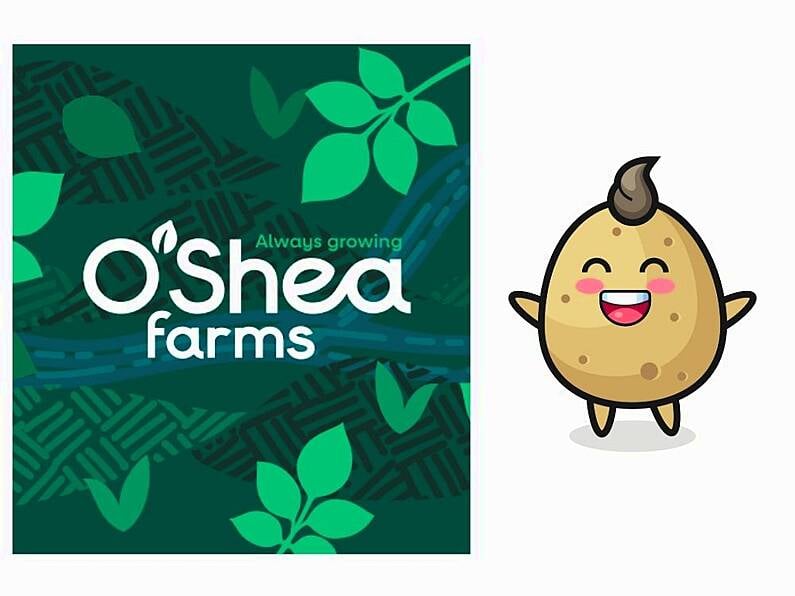Today is National Potato Day and here at Beat we're celebrating the iconic roots of the traditional Irish spud.
The national day of recognition for the hearty household kitchen staple falls on the first Friday of October every year.
We're exploring our nationwide grá for the crowd pleasing spud which originated in Ireland many many years ago.
But it wasn't always an Irish stereotype..
Did you know?
Potatoes were first introduced to Ireland in the late 1500’s.
At that time the strange new vegetable was often referred to as 'An Spáinneach', leading us to assume it was first imported by Spaniards.
The Spanish people were busy conquering South America at this time which is the natural habitat of the potato plant! Their native name for them is patatas, and we eventually settled on a very similar word..
Would you believe that there are more potatoes eaten in India and China than all the other countries in the world combined?
China has many languages, and many names for the potato, the most common being língshu (horsebell) and tu dóu (earth bean). Our French neighbours call them 'Pomme de terre' and the Dutch call them 'Ardappel' meaning 'earth apples'.
The nations of Eastern Europe lead the world when it comes to consumption per capita, with the average Belarusian consuming 170kg of potatoes per year. Ukraine, Kazakhstan and Poland are all big fans too.
Potato consumption in Ireland has decreased slightly over the years, but we still manage to munch our way through 85kg per person, coming in behind only Belgium and the Netherlands in Western Europe.
The popularity of the spud is rising again since the marvelous invention of the air fryer!
The ever popular kitchen counter appliance has reinvented the potato as a quick and easy snack and reignited our grá for the many ways they can be enjoyed.
No need to pull the peeler out of the drawer as the skins contain all the healthy minerals and vitamins.
Just chop them into bite size pieces, spray on a little cooking oil and they are done in less than 20 minutes. Shake them up halfway through cooking and add a shake of your favourite flavouring – cajun, piri piri, spicebag, sweet chilli, barbecue, sriracha.. What's your favourite way to cook potatoes in your house?
Top Health Benefits
Did you know that potatoes have a wide range of nutritional benefits?
The root vegetable can improve energy levels.
One of the most important things to remember is that potatoes are nutritious vegetables packed with essential vitamins and minerals that help boost the immune system and improve energy levels.
The Vitamin C and fiber content in potatoes help lower blood pressure and bad cholesterol.
Also, the fiber in potatoes helps satiate hunger and supports gut health.
Potatoes also contain Vitamin B6, calcium, magnesium, and iron.
They are gluten and cholesterol-free and are low in sodium and fat.
Potassium Can Lower Heart Disease Risk
Potatoes are loaded with potassium. Potassium's role when it comes to heart health is huge.
It helps trigger the bear-hug squeeze of the heart that results in a heartbeat.
Getting enough potassium through your diet and reducing sodium intake helps to lower systolic blood pressure, which reduces the risk of heart disease and stroke.
In addition to heart health, potassium aids in muscle function and fluid balance, which helps to sustain a workout and daily activities.
Antioxidants Can Slow Down the Aging Process
The colour of the potato can impact the number of antioxidants present.
Studies suggest that you should choose coloured potatoes over white if you'd like to fully reap the antioxidant benefits of potatoes (Rooster!!)
Anthocyanins are powerful antioxidants that slow down the aging process—not only physically but mentally by keeping the brain sharp and preventing neurological decline.
Plus, the antioxidants found in most potatoes boast anti-cancer properties.
The highest antioxidant content is found in the potato's skin and flesh.
Resistant Starch Can Improve Gut Health
Resistant starch is a type of starch that isn't digested in the small intestine.
Instead, these starches act more like a fibre that feeds good bacteria in the large intestine, which can improve gut health.
Potatoes are a good source of resistant starch, and it's particularly increased when potatoes are cooled after they have been cooked (think potato salad).
These starches have also been shown to help control blood sugar levels and reduce the likelihood of insulin resistance.






